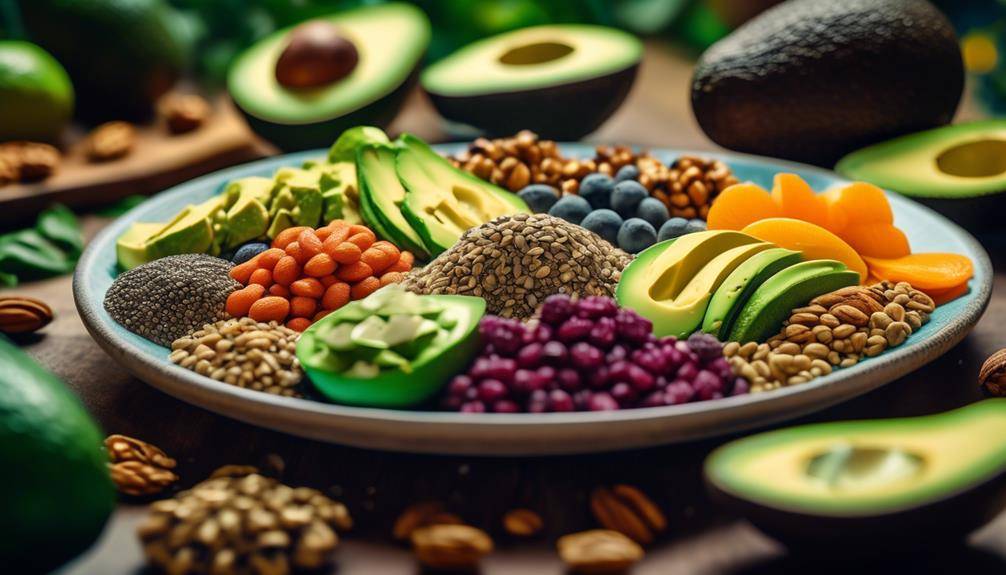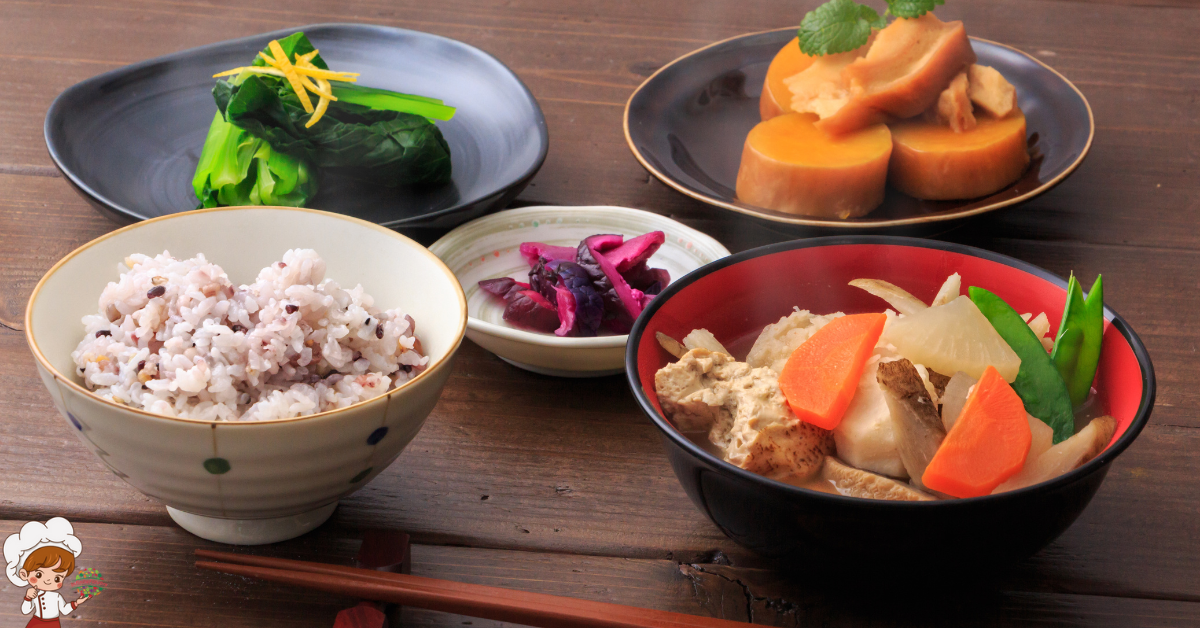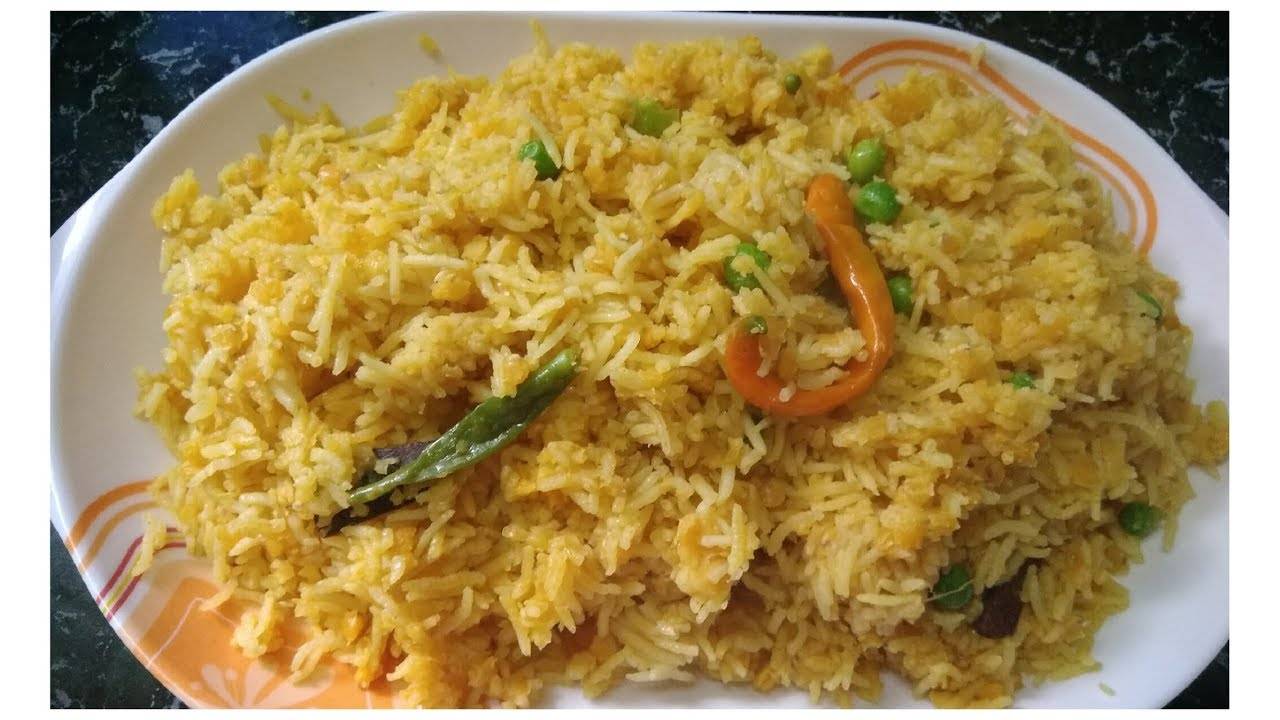What Are Important Essential Fatty Acids in Vegan Diet

Essential Fatty Acids in Vegan Diet; Imagine a lush garden, bursting with vibrant colors and fragrant scents. As a vegan, you have cultivated this garden of health-conscious choices, carefully selecting each ingredient that nourishes your body. Yet, amidst this bountiful landscape, there lies a hidden treasure that is often overlooked – essential fatty acids. These unsung heroes play a crucial role in your overall well-being, but how can you ensure you are getting enough? Join us as we explore the world of essential fatty acids in a vegan diet, uncovering the sources, benefits, and strategies to meet your daily requirements.
Importance of Essential Fatty Acids
The importance of essential fatty acids cannot be overstated in a vegan diet. These fats play a crucial role in maintaining brain health and hormone balance. Essential fatty acids, such as omega-3 and omega-6, are not produced by the body and must be obtained through diet.
In terms of brain health, essential fatty acids are vital for proper cognitive function. The brain is composed of about 60% fat, and omega-3 fatty acids, in particular, are essential for the structure and function of brain cells. They help to maintain the integrity of cell membranes, allowing for proper communication between brain cells. Research has shown that omega-3 fatty acids can improve memory, attention, and overall cognitive performance.
Furthermore, essential fatty acids are also involved in hormone balance. They are the building blocks for the production of hormones, including those involved in regulating mood, stress response, and reproductive health. Omega-3 fatty acids, in particular, have been shown to reduce inflammation in the body, which can have a positive impact on hormonal balance.
To ensure an adequate intake of essential fatty acids in a vegan diet, it is important to include plant-based sources such as flaxseeds, chia seeds, walnuts, hemp seeds, and algae-based supplements. These sources provide the necessary omega-3 and omega-6 fatty acids that are crucial for brain health and hormone balance.
Omega-3 Fatty Acids and Vegan Diet
To fully support your vegan diet, it is important to understand the significance of incorporating omega-3 fatty acids. While omega-3 fatty acids are commonly found in fish and seafood, it is possible for vegans to obtain these essential nutrients through plant-based sources.
Here are three ways you can ensure you are getting enough omega-3 fatty acids on a vegan diet:
- Flaxseeds and chia seeds: These tiny powerhouses are packed with omega-3 fatty acids. Just one tablespoon of ground flaxseeds or chia seeds can provide you with your daily recommended intake. Sprinkle them on your morning oatmeal or add them to your smoothies for an easy boost of omega-3s.
- Walnuts: Not only are walnuts a delicious snack, but they are also an excellent source of omega-3 fatty acids. Just a handful of walnuts can contribute to meeting your daily omega-3 needs. Add them to your salads, oatmeal, or use them in baking for a nutritious and flavorful addition.
- Vegan omega-3 supplements: If you find it challenging to incorporate enough omega-3s into your diet, consider adding a vegan omega-3 supplement. These supplements are derived from algae, which is a plant-based source of omega-3 fatty acids. They are a convenient and reliable way to ensure you are meeting your omega-3 needs.
It is important to be aware of the risk of omega-3 deficiency in a vegan diet. Without careful planning, vegans may be at a higher risk of not getting enough omega-3 fatty acids. By incorporating plant-based sources and considering vegan omega-3 supplements, you can easily meet your daily requirements and support optimal health on a vegan diet.
Sources of Omega-3 Fatty Acids for Vegans
Incorporating plant-based sources of omega-3 fatty acids is crucial for vegans to meet their nutritional needs. While omega-3 fatty acids are commonly found in fish and seafood, vegans can obtain these essential nutrients from various vegan sources. One of the richest vegan sources of omega-3 fatty acids is flaxseed. Flaxseed is not only high in omega-3 fatty acids, but it also contains fiber and lignans, which have antioxidant properties. Ground flaxseed can easily be added to smoothies, oatmeal, or baked goods, making it a convenient and versatile option.
Chia seeds are another excellent vegan source of omega-3 fatty acids. These small seeds are packed with nutrients, including omega-3 fatty acids, fiber, protein, and antioxidants. They can be sprinkled on top of yogurt, added to salads, or used as an egg substitute in baking recipes. Hemp seeds are also an excellent choice for vegans looking to increase their omega-3 intake. Not only do they provide omega-3 fatty acids, but they also offer a good balance of omega-6 fatty acids, which are important for overall health.
In addition to seeds, walnuts are a fantastic vegan source of omega-3 fatty acids. They are not only rich in omega-3s but also provide protein, fiber, and heart-healthy fats. Walnuts can be eaten as a snack, added to salads, or used in baking. Lastly, seaweed and algae, such as spirulina and chlorella, are vegan sources of omega-3 fatty acids. These sea vegetables can be consumed in various forms, such as powders or supplements, and are a great option for those who prefer to avoid nuts and seeds.
Health Benefits of Omega-3 Fatty Acids for Vegans
Maximizing your intake of omega-3 fatty acids as a vegan can lead to numerous health benefits. Omega-3 fatty acids, particularly docosahexaenoic acid (DHA) and eicosapentaenoic acid (EPA), play crucial roles in maintaining optimal health. As a vegan, you may have concerns about meeting your omega-3 needs without consuming fish or fish oil. However, there are several plant-based sources rich in these essential fatty acids that can provide you with the health benefits you seek.
Here are three health benefits of omega-3 fatty acids for vegans:
- Brain Health: DHA is a major structural component of the brain, and an adequate intake of this omega-3 fatty acid is essential for optimal brain function. Research has shown that DHA plays a vital role in maintaining cognitive health, preventing age-related cognitive decline, and reducing the risk of neurodegenerative diseases.
- Heart Health: EPA has been extensively studied for its cardiovascular benefits. It helps reduce inflammation, lower blood pressure, and prevent the formation of blood clots. These effects contribute to a reduced risk of heart disease, which is the leading cause of death worldwide.
- Eye Health: DHA is also a key component of the retina, the light-sensitive tissue at the back of the eye. Adequate levels of DHA support optimal eye health and may reduce the risk of age-related macular degeneration, a leading cause of vision loss in older adults.
Omega-6 Fatty Acids and Vegan Diet
If you’re following a vegan diet and seeking to maintain a well-rounded intake of essential fatty acids, it’s important to understand the role of omega-6 fatty acids. Omega-6 fatty acids are a type of polyunsaturated fat that are essential for our body’s functioning. They play a crucial role in various physiological processes, including inflammation and cardiovascular health.
While omega-6 fatty acids are necessary for our overall health, it’s important to maintain a proper balance between omega-6 and omega-3 fatty acids. The Western diet tends to have an imbalance, with an overabundance of omega-6 fatty acids compared to omega-3s. This imbalance has been linked to chronic inflammation, which is associated with various health conditions such as heart disease, obesity, and diabetes.
However, this does not mean that omega-6 fatty acids are inherently bad. In fact, they serve important functions in our body, including promoting healthy skin, supporting brain function, and aiding in the formation of cell membranes. The key is to consume omega-6 fatty acids in moderation and in the right ratio with omega-3s.
One way to achieve this balance is by incorporating plant-based sources of omega-6 fatty acids into your vegan diet. Good sources include nuts, seeds, and their oils, such as sunflower seeds, sesame seeds, and safflower oil. It’s important to note that while these sources are rich in omega-6 fatty acids, they also contain other beneficial nutrients, such as vitamin E and fiber.
Sources of Omega-6 Fatty Acids for Vegans
To ensure a sufficient intake of omega-6 fatty acids on a vegan diet, include plant-based sources such as nuts, seeds, and their oils. Omega-6 fatty acids are essential for the body as they play a crucial role in brain function, growth, and development, as well as maintaining overall health. While it is commonly believed that omega-6 fatty acids are harmful, they are actually essential for our well-being when consumed in the right balance with omega-3 fatty acids.
Here are some plant-based sources of omega-6 fatty acids for vegans:
- Nuts: Nuts like walnuts, almonds, and cashews are excellent sources of omega-6 fatty acids. Including a handful of nuts in your daily diet can provide a significant amount of these essential fatty acids.
- Seeds: Flaxseeds, chia seeds, and hemp seeds are rich sources of omega-6 fatty acids. These tiny powerhouses can be easily incorporated into your meals by sprinkling them on salads, adding them to smoothies, or using them as a topping for your favorite dishes.
- Oils: Certain plant-based oils, such as sunflower oil, safflower oil, and soybean oil, are also abundant in omega-6 fatty acids. These oils can be used for cooking or as a dressing for salads and other dishes.
Including a variety of these vegan omega-6 sources in your diet can help ensure that you meet your daily requirements of these essential fatty acids. Remember to consume them in moderation and maintain a balance with omega-3 fatty acids to optimize your overall health and well-being.
Health Benefits of Omega-6 Fatty Acids for Vegans
Including omega-6 fatty acids in your vegan diet can provide numerous health benefits. While it is important to maintain a balanced intake of essential fatty acids, such as omega-3 and omega-6, the latter is often overlooked by vegans. Omega-6 fatty acids play a crucial role in maintaining overall health and well-being. They are necessary for the proper functioning of the body and offer various benefits.
One of the key health benefits of omega-6 fatty acids is their role in reducing inflammation. These fatty acids are converted in the body into compounds called eicosanoids, which help regulate the immune response and inflammation. By including omega-6 fatty acids in your diet, you can potentially lower the risk of chronic inflammation and associated health conditions, such as heart disease, diabetes, and certain types of cancer.
Moreover, omega-6 fatty acids have been linked to improved brain health. They are essential components of cell membranes in the brain and play a crucial role in supporting cognitive function and development. Adequate intake of omega-6 fatty acids has been associated with better memory, learning abilities, and overall brain health.
It is important to note that while omega-6 fatty acids offer health benefits, excessive intake can have negative effects. Consuming too much omega-6 fatty acids relative to omega-3 fatty acids may contribute to an imbalance in the body, potentially leading to health risks such as increased inflammation and a higher risk of chronic diseases.
The recommended intake of omega-6 fatty acids for adults is about 12-17 grams per day. Good sources of omega-6 fatty acids for vegans include oils like sunflower, safflower, and corn oil, as well as nuts and seeds like walnuts and flaxseeds.
Incorporating omega-6 fatty acids into your vegan diet can provide various health benefits, including reduced inflammation and improved brain health. However, it is crucial to maintain a proper balance between omega-6 and omega-3 fatty acids to avoid potential health risks.
Meeting Daily Essential Fatty Acid Requirements in a Vegan Diet
To meet your daily essential fatty acid requirements on a vegan diet, it is important to include sources of omega-3 and omega-6 fatty acids in your meals. Good sources of omega-3s include flaxseeds, chia seeds, and walnuts, while omega-6s can be found in foods like sunflower seeds, soybean oil, and tofu. Balancing your intake of these two types of fats is crucial for optimal health, so aim to include a variety of both omega-3 and omega-6 sources in your diet.
Omega-3 Sources
Incorporating omega-3 sources into a vegan diet is crucial for meeting daily essential fatty acid requirements. Omega-3 deficiency is a common concern for vegans, as these fatty acids are predominantly found in fish and seafood. However, there are several plant-based sources that can provide the necessary omega-3 fatty acids. Here are some options to consider:
- Flaxseeds and flaxseed oil: These are rich in alpha-linolenic acid (ALA), a type of omega-3 fatty acid.
- Chia seeds: These tiny seeds are packed with ALA and can be easily added to smoothies or sprinkled on top of salads.
- Walnuts: These nuts not only provide a good source of healthy fats but also contain ALA.
If you find it challenging to get enough omega-3s from whole foods, you may consider vegan omega-3 supplements derived from algae, which are a great alternative to fish oil capsules.
Omega-6 Sources
To ensure optimal daily intake of essential fatty acids in a vegan diet, it is important to include adequate sources of omega-6 fatty acids. Omega-6 fatty acids are a type of polyunsaturated fat that play a crucial role in maintaining overall health. However, it is important to maintain a proper balance between omega-6 and omega-3 fatty acids in the diet.
The ideal ratio is considered to be between 1:1 and 4:1, with omega-6 to omega-3. A deficiency in omega-6 fatty acids can lead to various health issues, including inflammation and impaired brain function. Good sources of omega-6 fatty acids in a vegan diet include nuts, seeds, and plant-based oils such as sunflower oil, safflower oil, and corn oil. It is important to incorporate these sources into your daily meals to meet your omega-6 fatty acid requirements.
Balancing Dietary Fats
Achieving a proper balance of dietary fats is essential in meeting your daily requirements for essential fatty acids in a vegan diet. Balancing your dietary fats can provide several benefits, including improved heart health, reduced inflammation, and enhanced brain function. On the other hand, an imbalanced fat intake can lead to various risks, such as increased risk of cardiovascular disease, impaired immune function, and cognitive decline. To maintain a balanced fat intake, consider the following tips:
- Include a variety of plant-based fats in your diet, such as avocados, nuts, seeds, and olives.
- Limit your intake of processed and fried foods, as they tend to be high in unhealthy fats.
- Incorporate omega-3 rich foods like chia seeds, flaxseeds, and walnuts to ensure an adequate intake of this essential fatty acid.
Essential Fatty Acids in Vegan Diet; Frequently Asked Questions
Can Vegans Get Enough Essential Fatty Acids From a Plant-Based Diet Alone?
You can get enough essential fatty acids from a plant-based diet alone. There are vegan omega 3 sources like chia seeds and flaxseeds. Essential fatty acids provide numerous benefits for vegans, including brain health and reducing inflammation.
Are There Any Risks Associated With Consuming Too Much Omega-3 Fatty Acids on a Vegan Diet?
Consuming too much omega-3 fatty acids on a vegan diet can have risks. However, it is important for vegans to get enough omega-3s as they play a crucial role in brain health, heart health, and reducing inflammation.
What Are Some Vegan-Friendly Sources of Omega-6 Fatty Acids?
Vegan-friendly sources of omega-6 fatty acids are crucial for a balanced vegan diet. They help support brain function, reduce inflammation, and maintain healthy skin. Good sources include nuts, seeds, avocados, and plant-based oils.
Are There Any Potential Side Effects of Consuming Omega-6 Fatty Acids in Excess on a Vegan Diet?
Excess consumption of omega-6 fatty acids on a vegan diet may have potential health risks. It’s important to be aware of the recommended daily intake and balance it with omega-3 fatty acids for optimal health.
How Can Vegans Ensure They Are Meeting Their Daily Essential Fatty Acid Requirements Without Relying on Supplements?
To ensure you meet your daily essential fatty acid requirements on a vegan diet without relying on supplements, you can incorporate sources like flaxseeds, chia seeds, hemp seeds, walnuts, and algae-based omega-3 supplements. Get creative with plant-based options!
Conclusion
In conclusion, essential fatty acids play a crucial role in a vegan diet. Omega-3 fatty acids are important for brain health and reducing inflammation, while omega-6 fatty acids support heart health and immune function. Vegans can obtain these essential fatty acids from plant-based sources such as flaxseeds, chia seeds, walnuts, and hemp seeds. Including these foods in a vegan diet can provide numerous health benefits and help meet daily essential fatty acid requirements.








